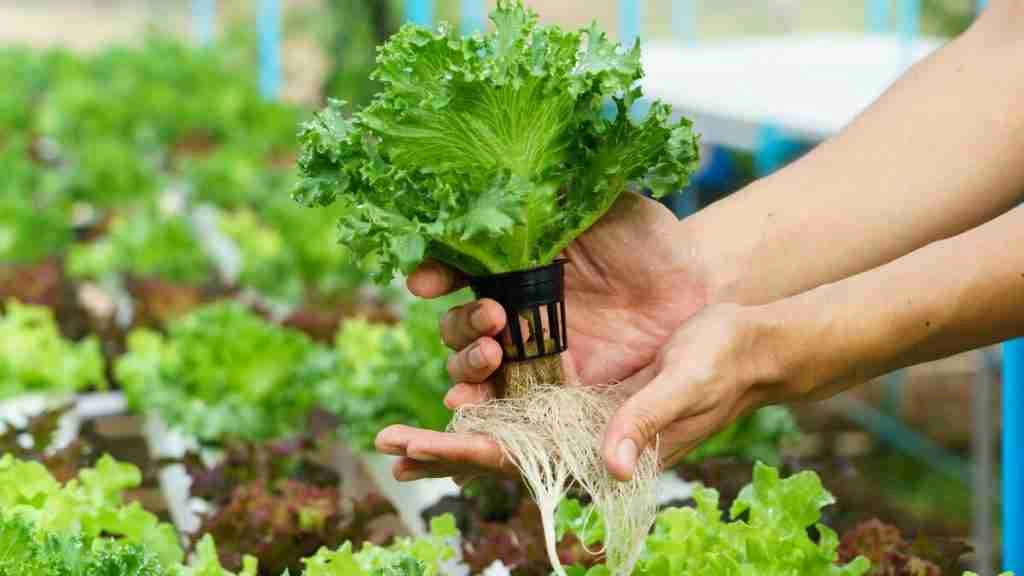
Hydroponics is a method for growing plants without soil, using only water, a necessary nutrient, and a medium to keep the plants in place.
There are various benefits of hydroponic gardening. Its practice can yield excellent results quickly with proper knowledge and techniques. It can also help conquer multiple environmental concerns, such as arable land reduction and water scarcity.
Also, with the demand for locally grown food increasingly growing, hydroponically produced products can efficiently meet local demand.
Read on to discover all the disadvantages and advantages of hydroponics farming. Also see: How To Water Succulents Without Drainage: A Complete Guide.
What Is Hydroponics?
The development of hydroponics farming has not been rapid. In the United States, interest started to develop in the possible use of complete nutrient solutions in 1925.
The idea behind hydroponic farming is that water replaces soil. And then, you add solutions to the water to provide easily accessed nutrients for a healthy yield. An example of nutrients you can add to the water is calcium, phosphorus, nitrogen, potassium, and many more, based on the type of plants you want to grow.
Generally, a hydroponics farm is contained within a greenhouse; however, you can also set hydroponics systems outdoors.
With hydroponic gardening, you can produce a wide variety of edible plants, such as veggies, herbs, and even some fruits indoors all year round, regardless of what Mother Nature has planned outside your door.
Now, let’s explore all the disadvantages and advantages of hydroponics farming.
Advantages of Hydroponics Farming
Hydroponics farming is beneficial to your health, but it is also helpful to the environment. Here are the key advantages of hydroponics farming.
1- Hydroponics Helps Saves Space
One of the advantages of hydroponic systems is that farmers can save space and grow more plants than soil-based methods in the same amount of space.
There is no need for colossal farming land with hydroponic farming as it allows you to produce crops in greenhouses, even in the desert sands.
Usually, when you grow plants in soil, they must be planted a certain distance apart because they need to spread their roots to find water and all the nutrients they require to survive.
However, in hydroponic systems, roots don’t need to spread as water and nutrients are delivered directly to the plants.
In other words, you can grow more plants in a defined space or grow plants in tiny spaces where it would not be possible to grow soil-based plants.
One of the reasons is that hydroponic plants need less space than conventional soil-based farming, and plants’ roots do not have to spread out within the soil to search for nutrients and water. Nutrients and water are delivered to the roots directly, either intermittently or continuously, depending on the particular hydroponic technique.
Also see: How to Propagate Succulents with Honey: A Complete Guide
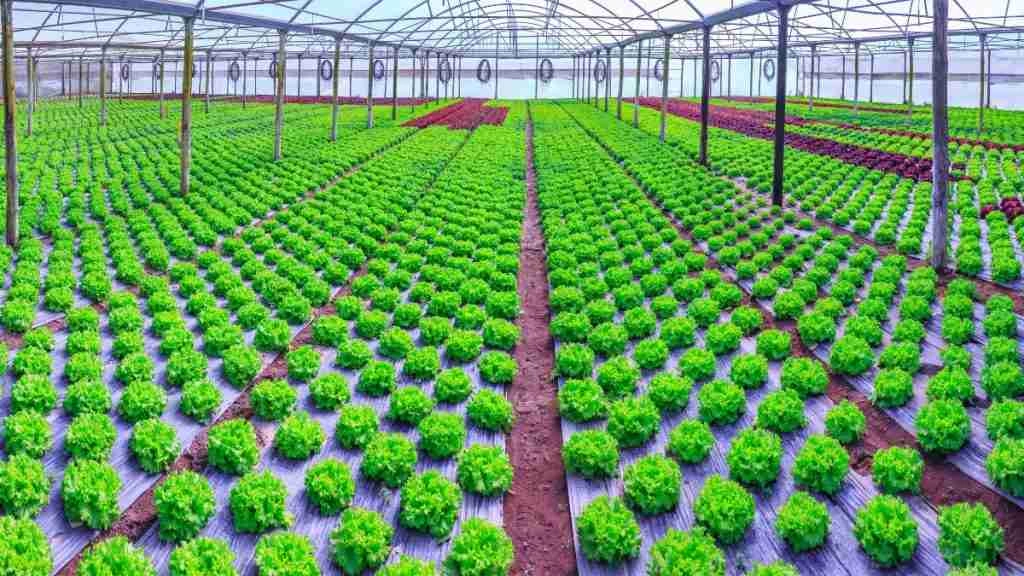
2- Hydroponics Helps Conserves Water
Do you know that agriculture accounts for nearly 80 percent of the United States consumptive water usage?
Agriculture is a major user of soil and surface water worldwide. There is a lot of wastage of water during field farming. And global food production is continuously increasing yearly and consuming more water than ever before.
What if you can grow plants quicker, larger, and use only 10% of the water typically required? Well, hydroponics allows you to do just this.
Hydroponic systems use about ten times less water than traditional farming. Saving water is a huge benefit, especially in areas with scarce water resources.
Unless we adopt hydroponics technologies to promote more sustainable agriculture, we are endangering our planet’s environment.
Furthermore, in a hydroponic system, you capture and reuse the water compared to conventional agriculture, where it runs off and drains into the environment.
3- No Soil Is Needed For Hydroponics
Growing food without soil was once a foreign concept; however, it is now a reality for domestic and commercial growing.
There are several benefits to growing plants without soil.
There is broad variation in soil quality from one location to the next, and many plants have strong preferences for a particular soil. If you do not have this readily available soil type, it can be expensive and labor-intensive to import suitable or modify your existing soil.
For instance, countries with limited arable land, such as deserts or rocky regions, would no longer be limited by how much food they can grow. It is a motivating factor for a transition to hydroponics. The possibilities for cultivation are significantly increased in these locations.
Countries can reduce the need to import fresh produce and reduce water consumption, which can also be an issue in many nations.
Also see: How To Get Rid Of Golden Rain Tree Bugs: A Complete Guide
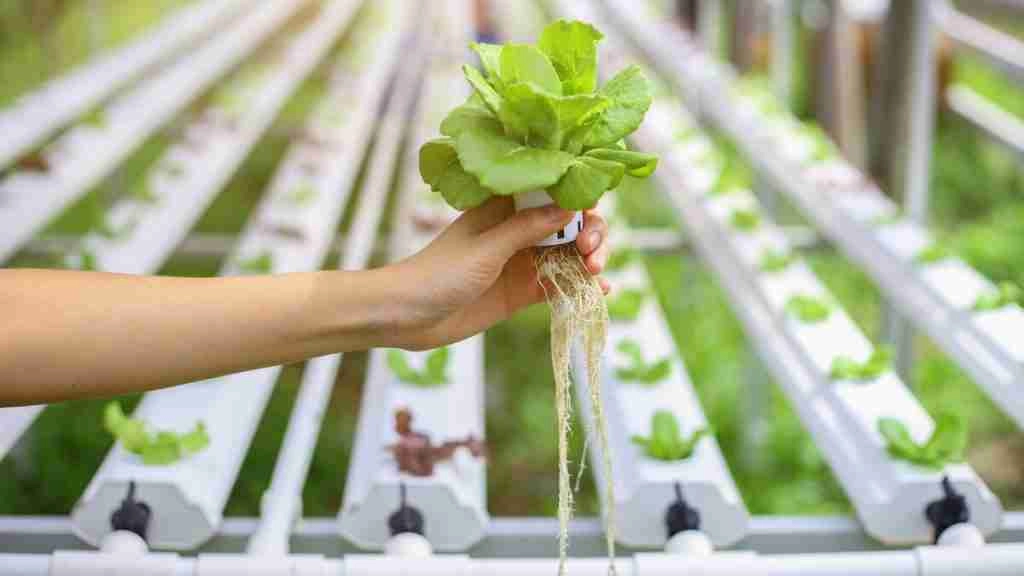
4- Hydroponics System Uses Fewer Chemicals
With hydroponic systems, there is no need to deal with pest issues, resulting in less pesticide use.
Hydroponic systems are highly controlled, so there is no risk of weeds taking over your garden. As a result, you will not need to use pesticides and herbicides.
Furthermore, hydroponic systems are often indoors, so pests can’t infiltrate them quickly; consequently, you will not need pesticides.
5- With Hydroponic Systems, Plants Grow Faster
In hydroponic systems, plants grow 30% to 50% more than they would be grown in the soil.
In other words, you could double your harvest from an equivalent number of plants over the time it will take to grow in a traditional garden.
In hydroponic systems, usually, crops grow faster because they get a perfect amount of nutrients and if grown indoors, crops have less environmentally induced stress, such as weather and pests.
Some species grow faster than others. For instance, leafy greens like lettuce and thirsty fruits like tomatoes usually grow more quickly in hydroponic systems.
6- Hydroponic Systems Helps Climate Control
Hydroponic farming gives you total control over the climate. For instance, you can adjust the temperature, light intensity, duration, and even air composition for optimal growth.
It also helps to maximize food production all year round, and consumers can access products whenever they desire, regardless of the season.
Also see: How To Remove Aphids From Kale: A Quick Guide
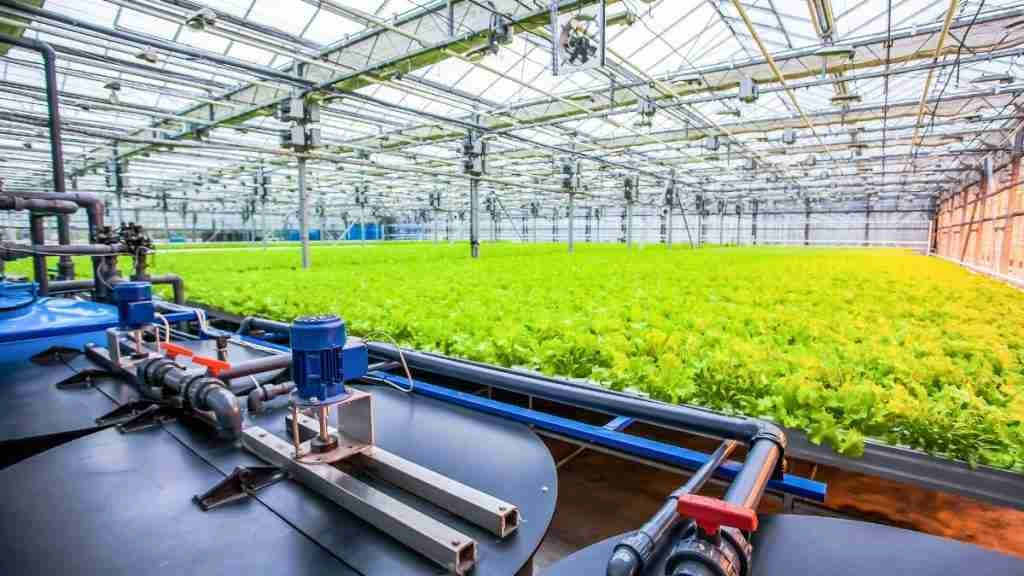
7- Nutrient Control
Hydroponic methods feed plants a nutrient solution mixed with water, providing farmers better control over what nutrients their crops absorb.
Too much farming in the same soil plot can deplete the ground of its natural nutrients; therefore, farmers have to use fertilizers to help.
However, in the hydroponics system, the plants are already getting the necessary help and the right amount.
Make sure you research and make the right measurements, and your crops will have everything they need to survive from water.
Check this detailed guide to help you make the right measurements.
8- pH control
Hydroponic systems enable you to adjust and tweak the pH level manually as needed, ensuring that your plants receive optimal nutrient intake.
Growers occasionally overlook PH levels, but it is a crucially important aspect of cultivation that ensures that your plants can access proper quantities of the nutrients they need for healthy growth.
Unlike conventional soil-based farming, the essential minerals for growth are in the growing solution in hydroponic farming. The pH of this solution can be adjusted quickly and measured accurately to maintain an optimal pH at all times.
Ensuring optimal pH enhances a plant’s ability to uptake essential minerals. If PH levels fluctuate too much, plants may lose their ability to absorb nutrients.
Even though some plants thrive in slightly acidic growth environments, pH levels should usually range between 5.5 to 7.
Use this guide to search for optimal PH levels.
Also see: How To Keep Ants Off Strawberry Plants: Here’s How To Do It

9- Grow Indoors
Another advantage of hydroponic agriculture is that it is easy to do indoors.
Hydroponic methods are habitually implemented settings indoors because of the environmental control it allows. With near-perfect growing conditions, plants grow healthier, stronger, and faster.
Growing indoors has benefits, such as temperature and climate control, the ability to grow year-round, and fewer pests.
10- Hydroponics Keeps Healthier Plants
Another advantage of hydroponic farming is plants grow healthier than in soil agriculture.
For instance, soil-borne diseases aren’t an issue in the hydroponics system because there is no soil for those diseases to spread.
Furthermore, plants don’t have to spread their roots out in search of nutrients; therefore, they get to spend more energy trying to grow.
11- Hydroponics Provides Bigger Harvest Yields
Since more plants can be grown in small spaces with hydroponic farming than with soil farming, hydroponic methods typically produce more per square foot.
Moreover, plants are stronger, healthier, and grow faster, generating more products quickly.
Plus, indoor conditions also allow year-round gardening; regardless of weather or season, you can continue to produce and harvest several times a year.
Also see: How To Get Rid Of Worms In Potted Plants: A Quick Guide
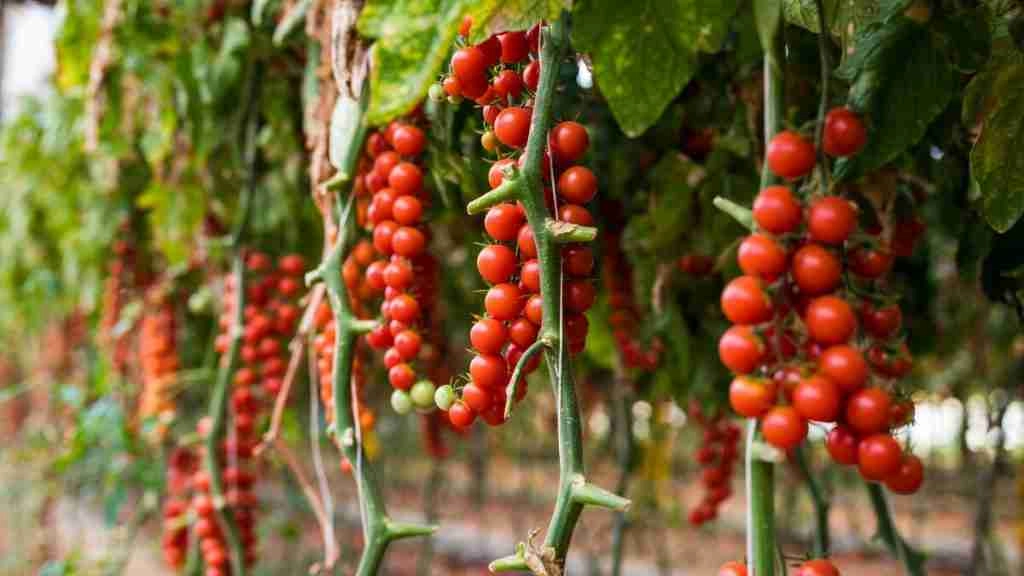
12- Less Soil Erosion
In the last 150 years, field agricultural practices have eroded half of the soil on Earth, leading to a decrease in arable land availability.
In addition to erosion, soil quality is affected by other aspects of agriculture, including compaction, loss of soil structure, nutrient degradation, and soil salinity.
With hydroponic systems, no soil is used, meaning no soil erosion.
13- Hydroponics Is Less Labor Intensive
Even though hydroponic farming has high setup costs for domestic and commercial use, the labor involved in cultivating plants is lower than in conventional soil-based agriculture.
It frees up time to focus on other activities instead of spending your time mulching, tilling, or changing soil and weeding.
14- No Weeds With Hydroponic systems
Hydroponic systems are inhabitable for weeds’ seeds because weeds need the same conditions as other plants to grow.
Since seeds can’t start germinating in hydroponic systems, weeds will not take root and steal your crops’ precious nutrients.
Weeds are usually time-consuming to remove from soil and impact the growth of the plants you are growing. With hydroponics, weeds are no longer an issue.
Also see: Can Succulents Grow in Shade? Here’s the Truth
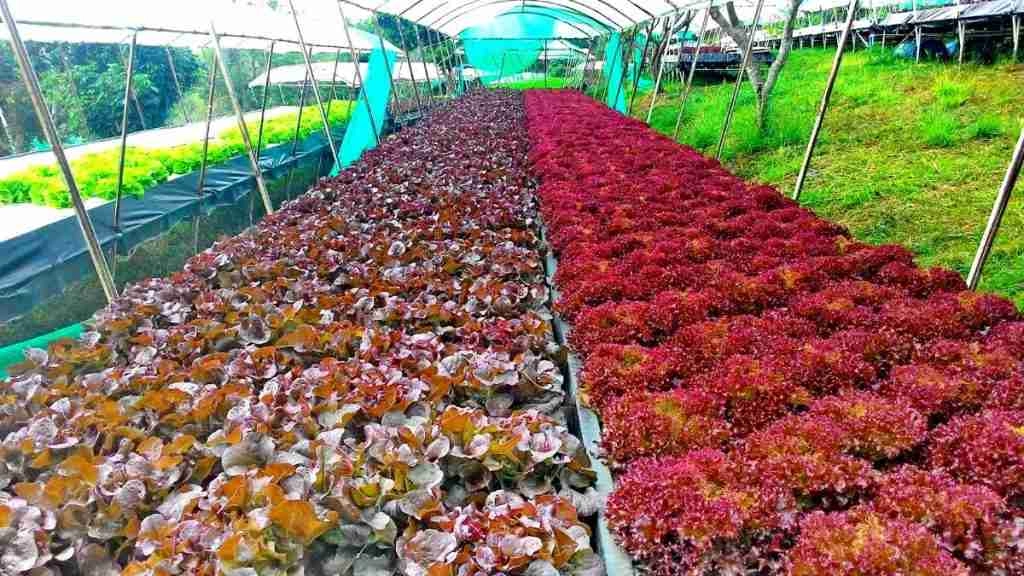
15- Hydroponic Systems Help Relieve Stress
Like any other form of farming, hydroponic systems help relieve stress by giving you a chance to reconnect with nature.
Practicing gardening distracts us from our problems and prevents us from obsessing about our worries, reported a 2009 study.
After a tedious and long day at the office, you can always return home to your little hydroponic garden to relax and take care of your plants.
Growing plants is incredibly relaxing and adds the right dose of freshness to your space.
Disadvantages of Hydroponic Farming
Like any method of agriculture, Hydroponics has its disadvantages. In the following section, we will discuss some of these cons of hydroponic farming in further detail.
16- Hydroponic Farming Can Be Time Consuming
A hydroponic garden may require more of your time and commitment.
While the process of hydroponic farming might appear feasible and convenient, it is also slightly time-consuming.
Because the plants growing in this process almost entirely thrive on water, you need to be gentler with them.
In hydroponic systems, plants require constant care. You will need to replace the water regularly and continuously check on the plants.
Like any worthwhile life, a hard-working and commitment give satisfying yields.
In conventional soil-based farming, you can leave your plants for days and even weeks, and they still survive for a short time. Mother nature auto-regulates the soils.
With Hydroponics, plants depend on you for their survival, and they will die out more quickly without proper care and sufficient knowledge.
17- Hydroponic Farming May Require Some Expertise
The method of hydroponic farming depends on a variety of equipment that requires proper expertise.
Unless you know or learn how to operate this specific equipment, the plants will not properly thrive or flourish as expected.
Even the tiniest mistake can affect your plant growth and may destroy your hydroponic system. Therefore, it is essential to familiarize yourself with the equipment and techniques involved in this farming method.
For successful hydroponic farming, ensure you take good care of your plants from the initial installation and automate the whole thing later; however, you still need to assess and prevent the operations’ unexpected issues and perform frequent maintenance.
Also see 5 Succulent Christmas Ornament Ideas For Diy Enthusiasts!

18- Require Water and Electricity
With a hydroponic system, you mostly use water and electricity. And electricity and water are essential in hydroponic farming.
Always put safety first when working with a combination of water systems and electric equipment, particularly in commercial greenhouses.
Electricity combined with water can be dangerous. With this system, you must also follow proper safety precautions to ensure that your plants stay healthy at every stage.
19- Risks of System Failure
With the hydroponic system, you must take precautionary measures in case of power blackouts.
Since the system depends on an electricity supply, you need to have a backup in case of a power surge or complete power blackouts, especially for large-scale systems.
If you do not take preliminary actions for a power outage, the system will stop working instantly, and your plants may dry out quickly and die within a few hours.
20- Debates Over the Organic Nature
There has been a heated discussion on whether hydroponic farming is a certified organic farming method or not. People are asking whether plants grown hydroponically will get microbiomes as they are in the soil.
Over the last decade, people worldwide have produced hydroponic plants such as tomatoes, lettuce, and other leafy vegetables.
A few countries, like Australia, the United States, and the Netherlands, have already performed and succeeded in this farming mode by providing food for millions of people.
It is important to remember that every type of farming has a few disadvantages. For instance, there will be risks of pests and pesticides with traditional farming compared to hydroponics.
There are some organic growing techniques suggested for Hydroponic growers. For instance, some growers provide plant microbiomes using organic growing media such as coco coir, add worm casting, and other natural-made nutrients, such as fish, bones, alfalfas, cotton seeds, and neems.
Also see: Is Sulfur Good For The Garden? Pros & Cons Of Using It

21- Hydroponic Farming may be Expensive
Most hydroponic farming requires expensive equipment, such as high-quality lighting, containers, an accurate timer, and quality nutrients.
Like conventional soil-based farming, hydroponic farming requires heavy installation investment and recurring costs.
So, if you are unwilling or cannot afford to spend some heavy initial expenses, hydroponic farming may not be the best option.
Once your system is up and running, the cost will be reduced to mostly nutrients and system maintenance.
Commercial growers usually face some significant challenges with hydroponic farming when starting with hydroponics on a large scale. One of the reasons is the high initial expenses and the uncertain return on investment (ROI).
It is not easy to detail a clear profitable plan to urge investment.
22- Return on Investment
Because the costs involved in hydroponic farming can be costly, the return on investment won’t be as high, particularly on a commercial scale.
One of the reasons is the hefty initial expenses and unsteady profits.
Also see: How Long Does It Take Sevin Dust To Work? This Long!
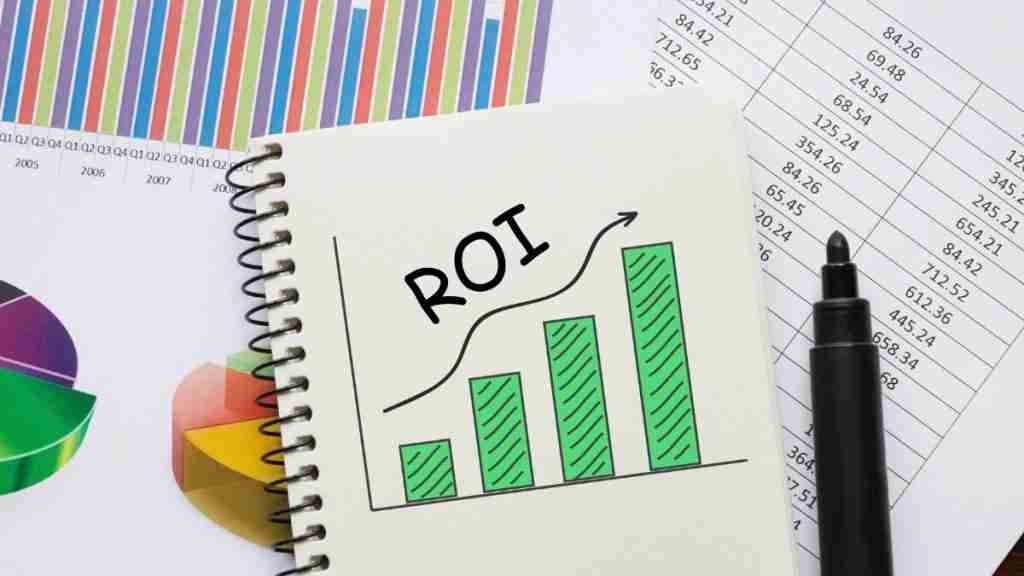
Final Words
Overall, the disadvantages and advantages of hydroponics include saving space, conserving water, using fewer chemicals, providing bigger harvest yields, and relieving stress. However, hydroponic farming can be time-consuming and require a certain level of expertise.
Hydroponic farming is an excellent method of agriculture, and its benefits often outweigh the cons.
Compared to the traditional soil-based system, Hydroponics offers lots of advantages. Still, some people may get intimidated by the upfront and operational costs of starting a commercial system. However, with a properly managed system, you need not worry about this when profits start coming in in the long run.


